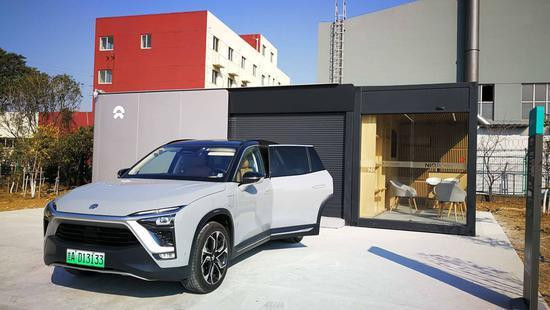China electric car startup NIO Inc. is setting up its overseas business - pursuing an internal code called the "Marco Polo Plan" for selling vehicles to Europe markets, according to industrial technology research company iyiou.com quoting people familiar with the matter.
As many as 7,000 electric SUV NIO ES8s and ES6s will be introduced to Europe over the next two years, according to the report.
The company hasn't made an official statement. Its shares were last trading at $30.58 on the Nasdaq.
Europe, The New Market
NIO raised $1.7 billion in August by offering 75 million American depositary shares.
Part of the net proceeds from the offering will be spent on research and development in autonomous driving technologies, world market development and general administration, according to a company statement.
NIO's CEO William Li said at that time that the brand would be represented in the most important world markets by 2023 or 2024 and the company planned to tap into the countries that "like electric vehicles." He didn't elaborate.
Sources told iyiou.com that the company was likely to start in Norway - it is currently leading the way in EV ownership in Europe and also has the largest share of fully electric vehicles around the world. Nearly 75% of new vehicles sold in Norway are plug-in hybrids or fully-electric models.
NIO competitor XPeng Motors exported its first batch of vehicles - 100 model G3 fully electric SUVs - to Norway in September.
Europe saw a 44% sales increase in the EV market last year - the highest since 2016. Under the EU emissions standards, carmakers have to reduce the average emissions from their passenger vehicles to 95 grams of CO2 per kilometer - or face fines. The rules phase in for 95% of vehicles in 2020 with 100% compliance in 2021. Of the 27 EU countries, 24 have issued EV incentives.
It's All About The Battery
The 6-year-old startup NIO delivered 12,206 vehicles in the third quarter - an increase of 154.3% year on year. Cumulative deliveries of the ES8, ES6 and EC6 reached 58,288 vehicles as of September of which 26,375 were delivered in 2020.
The record quarterly deliveries followed a Battery as a Service business model the company launched this August.
Under the new model, NIO's battery asset management company - Wuhan Weineng Battery Asset Co. - is in charge of purchasing and leasing batteries on a monthly basis to customers, separating battery use from the vehicle body.
Its shareholders include China's largest automotive lithium-ion battery maker Contemporary Amperex Technology, which holds a 25% stake for its 200 yuan million investment.
This move brought NIO's ES6 SUV price from 343,600 yuan ($49,700) to 274,000 yuan ($39,553), which is NIO's cheapest car without ownership of the battery pack.
As battery technology changes more rapidly than electric motors, battery swapping could reduce cash burdens on customers and facilitate sales, analysts said.
As of Oct. 5, there were up to 155 NIO's battery exchange stations across the country, covering nearly 65 cities and on the 1,000-kilometer-long G2 freeway between Beijing and Shanghai as well as the 2,310-kilometer-long G4 freeway between Beijing, Hong Kong and Macao. At these stations, NIO electric car owners can replace batteries with full ones within three minute.
Experts say it is costlier to build up battery exchange stations in Europe. The key for NIO's sustainable development in the new international market depends on its collaboration with local filling station groups.
NIO reportedly has spent more than 500 million yuan domestically in battery exchange stations.
It will release its third quarter financial report Nov. 17.





